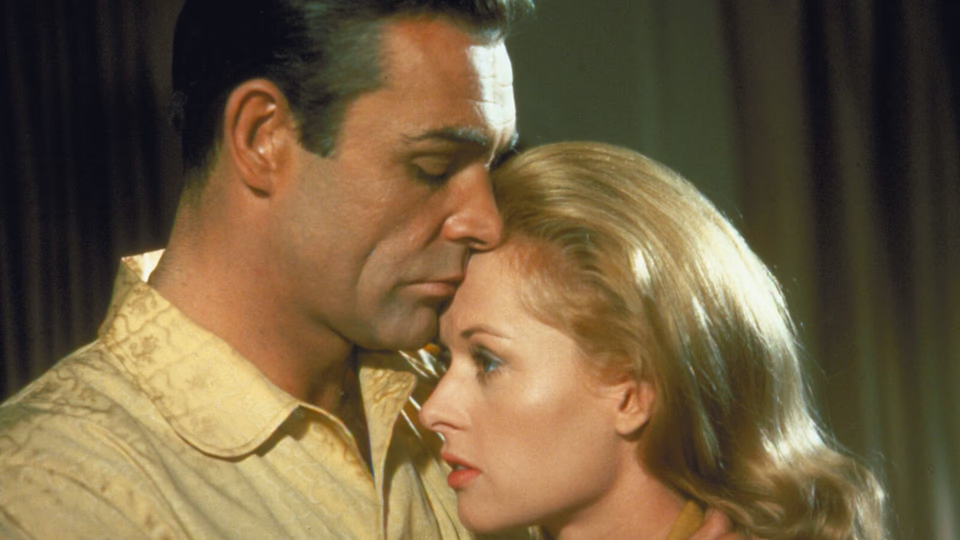Marnie

A rich businessman (Sean Connery) becomes interested in a serial thief (Tippi Hedren) in his employ.
Marnie is a miss, but an interesting one. Director Alfred Hitchcock covers some of the same territory here as in his earlier Spellbound, only with less successful results. While his use of color as a story element is engrossing, the overall film feels lazy and undisciplined.
For his part, Sean Connery is great in one of his first roles after breaking out in the James Bond series of films. His charisma and intensity fit the part well, and he wins the audience over early on. His performance and the few moments of inspiration from Hitchcock are the film’s saving graces.
Marnie is terribly uneven. The opening shot is classic Hitchcock: light, color, composition and sound all coming together to efficiently tell a story. Color, particular, plays a part, as yellows, reds, and greens all figure prominently in the story, but while Hitchcock hits with this element, he misses with so many others.
Much has been made of the glaringly bad matte paintings and rear projection. Some have argued that Hitchcock’s intention was to present an Expressionist film, which may indeed be true, but whatever the intent, the effects only serve as a glaring detractor from the story, which only adds to the film’s rough-around-the-edges feel.
This feeling extends to the score by longtime Hitchcock composer Bernard Herrmann, which features numerous, distracting orchestra swells early on, that are distracting to the point of being comical.
But the most glaring flaw lies in lead Tippi Hedren’s performance. She’s not compelling and totally uncharismatic, and her climatic scene at the film’s finale feels so overdone, it too, seems almost comical. This, more than anything, is the film’s undoing, and it’s amazing Hitchcock didn’t realize it.
Or perhaps he did. There are rumors that, during filming, his relationship with Hedren soured after she refused his advances and that Hitchcock subsequently lost interest in the film. Whether or not this is true, it does go a long way toward explaining the mess that is Marnie.